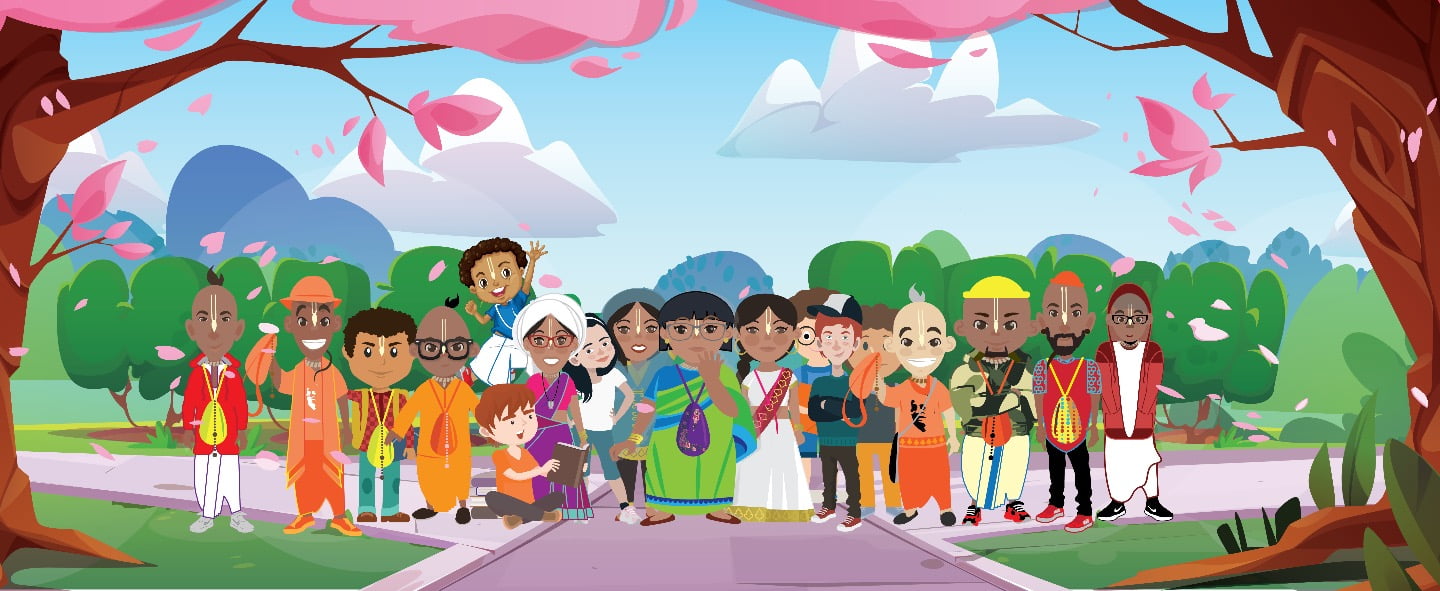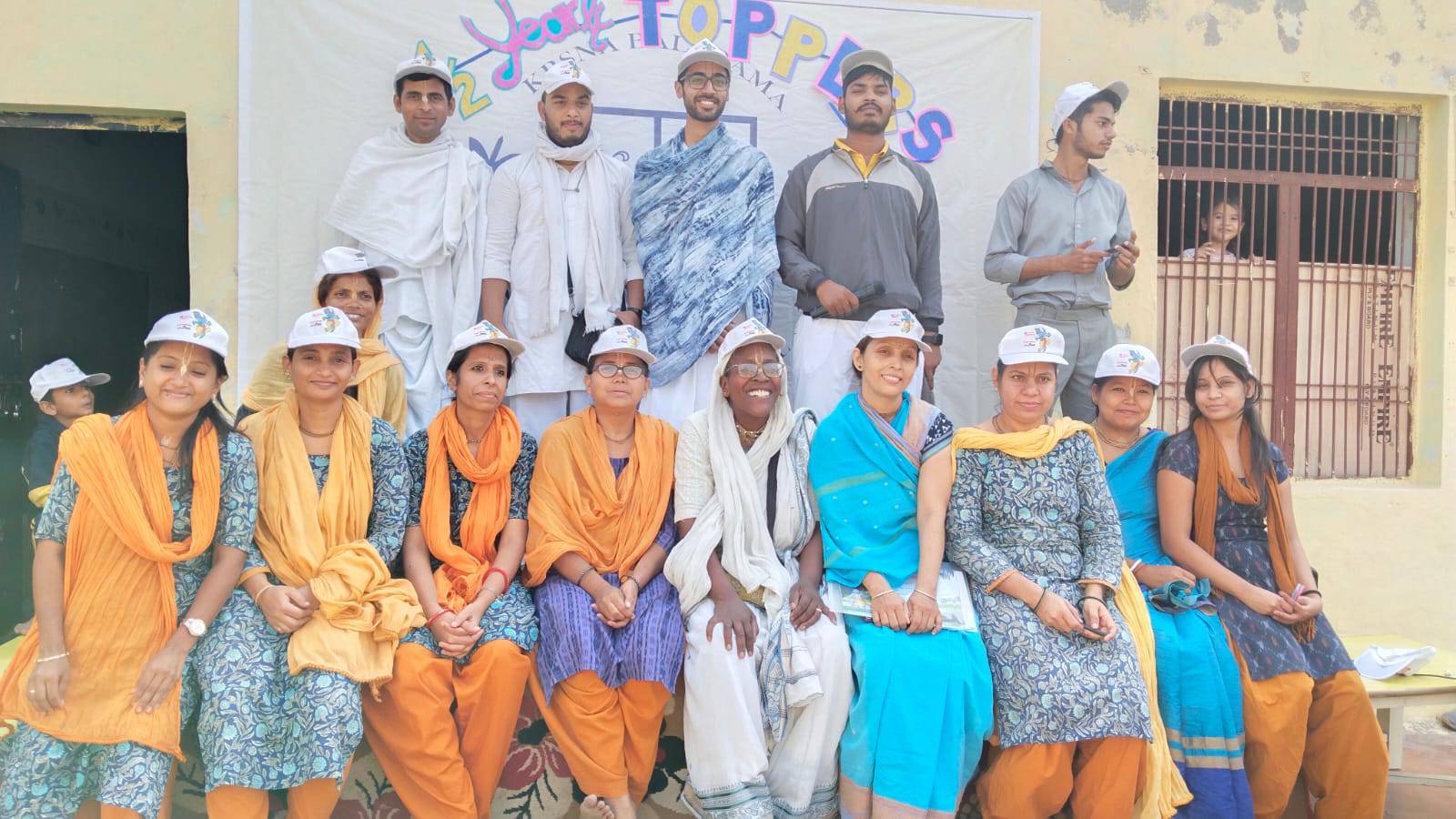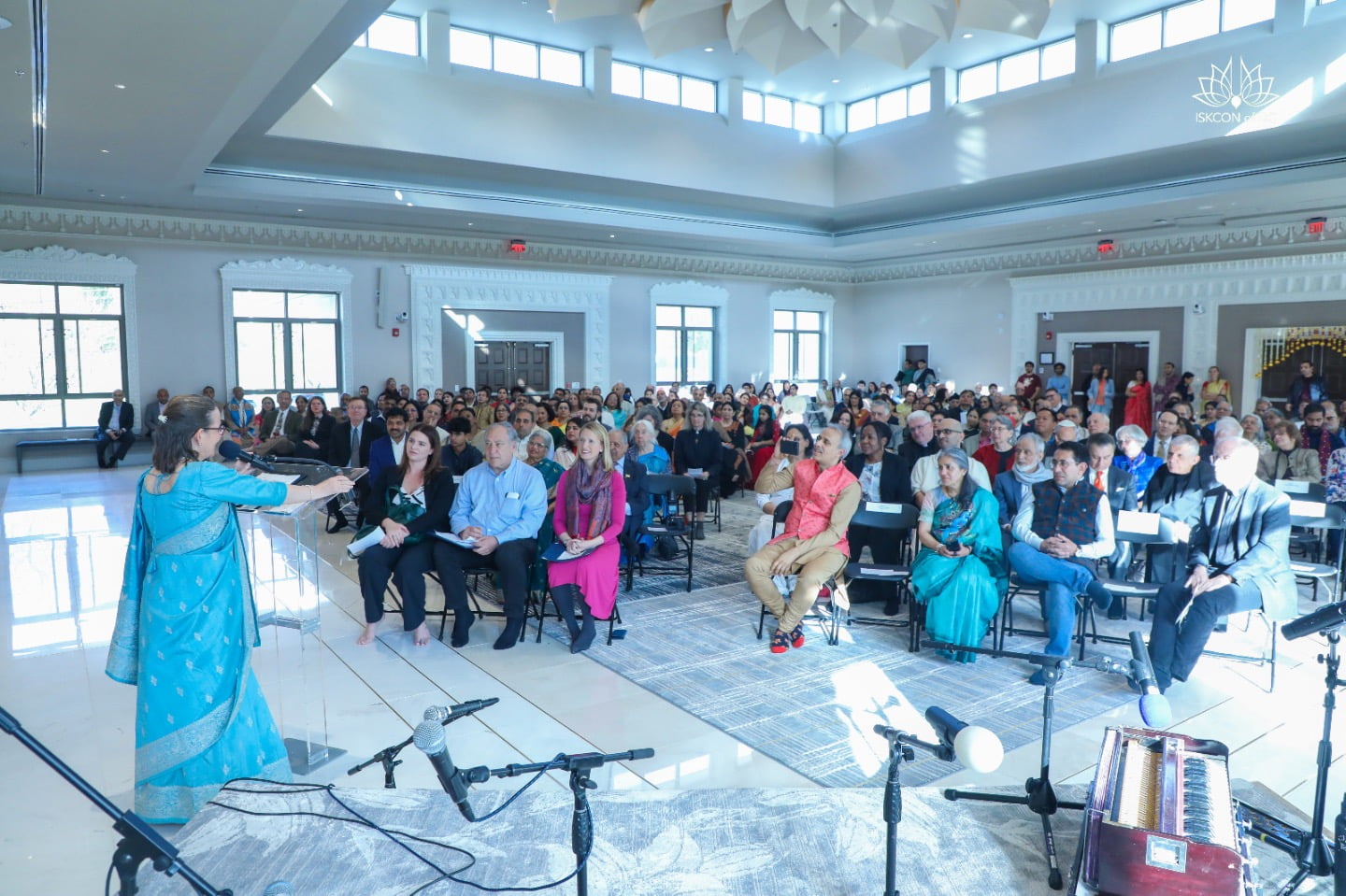ISKCON Supports Bill to Accurately Portray Hinduism in School Textbooks
By Madhava Smullen | Sep 10, 2014

A new bill that would require school textbooks to more accurately portray Hinduism and other religions and cultures has passed through the Senate and General Assembly in California.
California Senate Bill 1057 is currently awaiting the action of Governor Jerry Brown, who will either veto it or sign it into law by September 30th.
Meanwhile the Hindu American Foundation (HAF) and other groups are requesting organizations and individuals to contact the Governor and urge him on. Details on how to do this are at equityineducation2014.org.
As a monotheistic Gaudiya Vaishnava tradition under the broader umbrella of Hinduism, ISKCON recently sent a letter to the Governor to show its support.
Textbooks Grossly Misrepresent Hinduism and Umbrella Faiths
There are currently over 2 million Hindus in the US, with California boasting the largest Hindu population. And any one of them would balk at the current representation of their faith in Californian history and social science textbooks.
According to State Board of Education content standards, there are only three things that teachers are mandated to cover in Hinduism and Ancient India, which is taught in sixth grade: Brahmanism, the Aryan Invasion Theory, and the caste system.
“Brahmanism is a very out-dated, British Colonial-era term that was used to show that Hinduism is a religion controlled and set out by Brahmins,” says HAF Director and Senior Human Rights Fellow Samir Kalra. “It’s not even a term that’s familiar to most Hindus.”
Also born in the Colonial era and also outdated, the Aryan Invasion Theory posits that a group of invaders from the steppes of Central Asia settled in India in around 1,500 B.C. and created the Vedas and Hinduism.
Besides having a name that is most synonymous today with the Nazis, this theory takes credit for India’s culture and heritage away from its indigenous peoples and dates the Vedas far more recently than most Hindus would. What’s more, modern scholarly research has shown that there is no conclusive evidence for any such invasion.
The caste system, meanwhile, is a perversion of the ancient Varnashrama Dharma. It was rejected by the great spiritual teachers of India, and is of course reviled by modern day Hindus.
These are the only three topics on Hinduism covered in school textbooks – no mention of Sanatana Dharma, karma, reincarnation, or the Bhagavad-gita.
This is in contrast to the way other religious traditions such as Judaism and Christianity are taught – laying out the basics of their origins and beliefs in a positive light.
Current Textbook Presentations of Hinduism Lead to Bullying and Shame
“Sixth graders are obviously very impressionable,” says Samir Kalra. “And often their textbooks are the first exposure they have to other religions or cultures. So when they hear these kinds of things about Hinduism, it definitely colors their impression of Hindus.”
Kalra says Hindu parents have told him stories of their children coming home saying they don’t want to be Hindu anymore, because they were made fun of.
There have even been reports of classroom exercises where the students are divided up into caste groups, with Hindu children having to explain why this is their religion.
“At its worst this can even lead to teachers looking down on their students, as well,” says Kalra.
This doesn’t do much to build a positive self-identity for Hindu children. Nor does it help other children start their lives with an informed, inclusive outlook on the world.
Senate Bill 1057 Won’t Benefit Only Hindu Children
The Hindu community is not the only one that has been affected by the inaccurate, outdated content standards of school textbooks.
The Persian American and Mexican American communities, for instance, have also pointed out that they are misrepresented, and are major supporters of SB 1057, as are other groups.
For this reason, the new bill, authored by California State Senate Majority Leader Ellen Corbett, has been written in a way that will benefit all students, regardless of religion, ethnicity, culture, gender, or disability status.
“We know that the standards do not portray all groups accurately and equitably,” Kalra says. “So our goal was to not just benefit Hindu Americans, but to ensure the most up-to-date and accurate information about all groups.”
The New Bill Has Received Widespread Support
After the HAF approached Senate Majority Leader Ellen Corbett, a well-known champion for education, she introduced the bill in the State Senate on February 18th 2014.
The bill next passed through the Senate Education Committee and the Senate Appropriations Committee, before passing the full Senate with a 30 – 6 vote, then the full Assembly with a 76 – 3 vote, showing widespread bipartisan support.
Helping it through these stages were not only the Hindu American Foundation but also many other groups. The California Teacher’s Association, the California Parent Teachers Association, the State Bar of California, The Association of Mexican American Educators, and ISKCON all sent letters officially supporting the bill. All in all, SB 1057 is supported by over 100 organizations, educators, professors and government leaders.
The bill is now on the desk of California Governor Jerry Brown, who has until the end of September 2014 to either sign the bill into law or veto it.
What Changes Will The New Bill Make?
Senate Bill 1057 does not itself dictate specific new content to be included in textbooks. If it is passed, however, the bill will require the Superintendent of Public Instruction to convene a group of history-social science experts, including scholars and teachers, by March 30th 2018.
These experts will then create new content standards for textbooks with input from various community groups and scholars, and recommend them to the State Board of Education. These new standards will reflect up-to-date research and scholarship, and be sensitive to the perspectives of various religions, cultures, and other groups.
Finally, the Board of Education will be required to report that new textbooks with accurate content have been created by October 1st 2018.
Accurate textbooks, says Kalra, will help create a positive self-identity for students with previously misrepresented faiths or cultures, and reduce bullying and heritage shame. They will also give other children the knowledge to thrive in today’s diverse, globalized society.
What’s more, if the bill passes in California, which is often looked to as a model for educational materials, it’s likely that other states will follow suit.
What Can You Do to Help?
All this sounds great, but the bill is not in the clear yet — the Governor could still veto it.
According to Kalra, there’s always the chance to start a new bill in 2015 – but it would have to go through the entire process all over again, and with so many different factors at play, there’s no guarantee that it would get so far a second time.
Now, then, is the time to strike. Kalra urges all Californian residents to contact Governor Jerry Brown to show their support, and to act quickly. The Governor may have until September 30th, but he could make his decision in as little as one week from the date of this article.
Still, Kalra is upbeat. “Because it has received such widespread bipartisan support, and is the right thing to do for the State’s children, we’re feeling very positive that he will make the right decision in signing the bill into law,” he says.
To find out how to call, email, fax, or mail the Governor, visit equityineducation2014.org.












